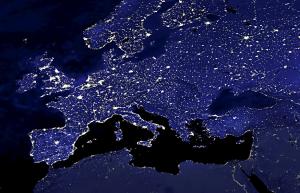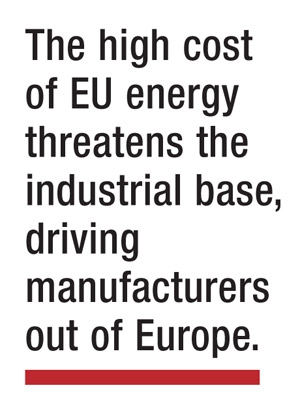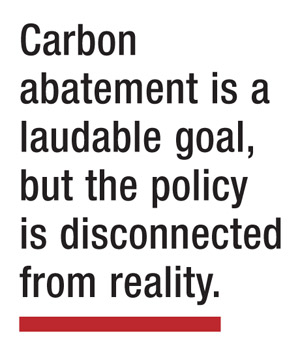Blown Fuse

Electric and gas utilities don't get a lot of love. They typically rank near the bottom in Bain & Company surveys measuring customer loyalty and advocacy across a range of industries. In these times of rising energy prices across Europe, that's understandable. But blaming utilities deflects attention from the serious problems wrought by the European Union's current energy policy and regulation - the playing field on which utilities must operate.
For the past decade, the energy policies of the European Union and individual countries have pursued the dual goals of reducing carbon emissions and promoting energy security. Both goals can be achieved through generating more energy from renewable sources, as well as by reducing consumption through measures like appliance standards and more intelligent meters.
Laudable goals - but politics has gotten in the way.
 In the early days of the EU, energy policy focused on market mechanisms such as carbon pricing through the Emissions Trading System. But politically expedient allocations of carbon certificates that were cost-free initially, combined with a recession, delivered a carbon price too low to spur the market to invest in renewables. So policy makers chose to intervene directly. And the nature of these interventions added unnecessary costs to consumers whose finances were already stretched thin.
In the early days of the EU, energy policy focused on market mechanisms such as carbon pricing through the Emissions Trading System. But politically expedient allocations of carbon certificates that were cost-free initially, combined with a recession, delivered a carbon price too low to spur the market to invest in renewables. So policy makers chose to intervene directly. And the nature of these interventions added unnecessary costs to consumers whose finances were already stretched thin.
With the right carbon price and a regulatory environment that emphasizes planning and building laws, Adam Smith's invisible hand would have invested in energy efficiency, more interconnections among national grids and low-cost renewables like onshore wind. Instead, in the heavy hands of politicians, since 2008, Germany has subsidized solar power with more than €100 billion and Spain has subsidized wind with around €11 billion - despite the self-evident fact that the sun is in Spain and the wind is in Germany. As politicians strive to build anywhere but in voters' backyards, they are now turning to higher-cost offshore wind farms.
Policy is, in short, disconnected from reality. Where today, carbon trades at €4-6 per tonne of carbon abated, Bain & Company analysis finds that the implied cost of carbon from a generation mix that factors in the rising share of subsidized renewables is closer to €50-100 per tonne. When customers complain about the rising costs of energy, politicians shift responsibility onto the utilities, which are vilified in turn by the customers receiving the bill.
Why should you care? Because failed energy policy has catastrophic consequences.
The high cost of EU energy threatens the region's industrial base, pushing manufacturers to move factories and other energy-intensive facilities from Europe to regions where energy prices are far lower. The International Energy Agency projects that Europe may lose one-third of its export market share of energy-intensive goods in the next decade to lower-cost regions. Energy-intensive industries represent one-fourth of industrial employment in the European Union.
EU policy has even unwittingly sabotaged the stated goal of carbon reduction. As the "shale gale" blew through the U.S., gas prices plunged and gas generation displaced coal there, causing coal prices to fall in kind. It's now cheaper for Germany to produce electricity by importing coal than by buying gas from Russia. And coal produces roughly twice the carbon emission of gas.
The Faustian bargain that utilities made with politicians - to pass on the policy costs to consumers - now haunts this vital sector. Since mid-2008, Bain calculates that the 20 largest EU utilities have suffered €0.3 trillion of shareholder value destruction. This is a direct result of policy interventions to encourage use of renewables at a faster rate than growth in consumption or retirement of conventional generating plants. These interventions made conventional fuels so unprofitable that many plants have been mothballed or decommissioned.
It doesn't have to be this way. We need an honest discussion about the costs and accountabilities of the expenditures forced on utilities and customers. Renewables are, of course, worth developing, but for the foreseeable future, we also need clean fossil fuels to provide backup capacity when the sun goes down or the wind doesn't blow. Without adequate stable returns, energy investors won't be able to invest in that capacity.

So far, the debate has focused on policy solutions that are politically more expedient, but costly. We suggest reviving the politically more difficult yet economically sustainable options. At the very least, the path forward should cover three areas.
First, policy makers should acknowledge that the current interventionist policies are too costly and have many unintended consequences. Let the market play a greater role in deciding how to supply energy for a particular location - wind power for the windy Netherlands, solar power for sunny Spain.
Second, interconnections between market grids also matter, to match demand with capacity across the European Union. The sector will need to be encouraged to make the investment in laying the wires, and national markets will need to be harmonized.
Third, power market design will need to adapt to reward flexibility in supplying backup power. Customers using renewables will need to pay their fair share toward the cost of transmission and distribution for the backup power used when the sun doesn't shine.
Policy makers alone cannot fix the European Union's energy conundrum. Utilities also have a role to play: They need to develop innovative products and services centered on the customer's home or business, not on the power station. That's a far more useful role than being cast as scapegoats.
Image © Can Stock Photo Inc. / drmglc




